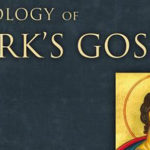Worship leaders seldom welcome controversy. But some church musicians delight in the dust-up one line in a hymn created earlier this year.
 The committee on congregational song for the Presbyterian Church, USA, wanted to include a version of the contemporary hymn “In Christ Alone” that altered a line in the second stanza from “the wrath of God was satisfied” to read “the love of God was magnified.” When the copyright holders, Keith Getty and Stuart Townend, declined, the committee voted not to include the song with its original lyrics.
The committee on congregational song for the Presbyterian Church, USA, wanted to include a version of the contemporary hymn “In Christ Alone” that altered a line in the second stanza from “the wrath of God was satisfied” to read “the love of God was magnified.” When the copyright holders, Keith Getty and Stuart Townend, declined, the committee voted not to include the song with its original lyrics.
“I rejoice in the controversy,” said Terry York, professor of Christian ministry and church music at Baylor University’s Truett Theological Seminary.
York, who has published more than 40 hymns and served as project coordinator for the 1991 edition of The Baptist Hymnal, sees the controversy as evidence of increased interest in the theology taught in worship songs. And he welcomes that kind of serious consideration.
“We’ve gone through a time when if it rhymed and said ‘Jesus,’ that was enough. We’re finally back to giving attention to what we are saying,” he said. “We need to think about our theology. I don’t care if it gives you tears or goosebumps, the question that matters is, ‘Is it true?’”
Todd Wilson, pastor for worship and music at First Baptist Church in Abilene, likewise welcomes the serious examination of hymn texts.
“What we sing shapes our theology, and a careful reading of the text of any worship song is necessary for inclusion in the publication of a denominational hymnal or a weekly service of worship,” he said.
Worship leaders need to take responsibility for studying the lyrics of hymns before selecting them for congregational singing, Wilson noted.
“Sometimes, we have found that word choice in a text might leave the truth open for interpretation that is distant from the original meaning. The context out of which the text appears will often shape word choice that could lead to misrepresentation of the original intent,” he said.
Sign up for our weekly edition and get all our headlines in your inbox on Thursdays
“I have often researched the writing of various songs of worship and have found a greater depth of meaning, out of that context, that has heightened the rich truth found in the lyrics.”














We seek to connect God’s story and God’s people around the world. To learn more about God’s story, click here.
Send comments and feedback to Eric Black, our editor. For comments to be published, please specify “letter to the editor.” Maximum length for publication is 300 words.